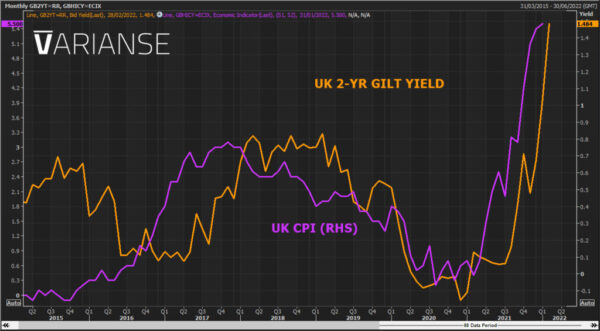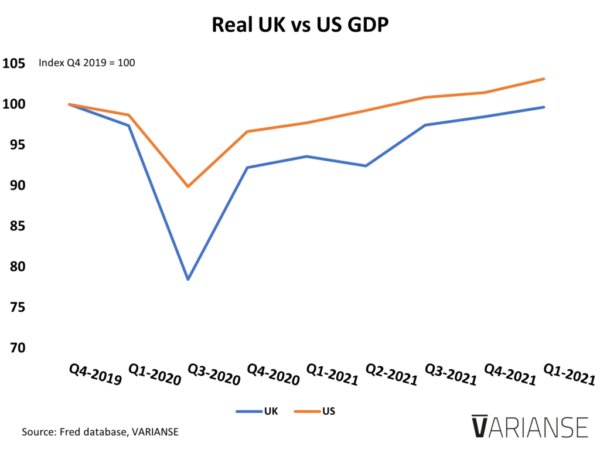UK short-term bond yields may struggle to keep up with inflation after January headline CPI surprised to the upside. If the Bank of England fails to deliver a 50 bps hike in March, GBP/USD could be in real trouble.
Earlier in February I pointed out how high expectations for Bank of England (BoE) policy tightening this year may contribute negatively to GBP/USD from then onwards. Flash forward to Wednesday’s higher-than-expected 5.5% y/y UK January CPI print and my concerns have only grown. UK-2-year government bond yields, already well above pre-pandemic levels, risk failing to keep pace with inflation.
UK CPI vs UK yields
Furthermore, economic theory doesn’t necessarily favour currencies from countries that are running high levels of inflation over the long term. Granted, on a relative basis US headline CPI ran at 7.5% in January versus 5.5% for the UK, but the US economy, based on quarterly GDP figures, has as also has surpassed pre-pandemic levels by more much than the UK. In other words, the Fed has more justification on both growth and inflation grounds to be hiking aggressively.
Growing expectations of a 50 bps hike from the BoE, versus 25 bps when the central bank next meets in March, puts the value of GBP/USD at risk should the BoE ultimately disappoint. Households in the UK are already coming under pressure from negative real wage growth and big upward swing in April utility bills. This could force the BoE to go lower rather than higher. If the BoE does disappoint, interest rate markets could easily take that as a sign that the BoE has lost the grip on inflation. That could prove bad for GBP/USD.


